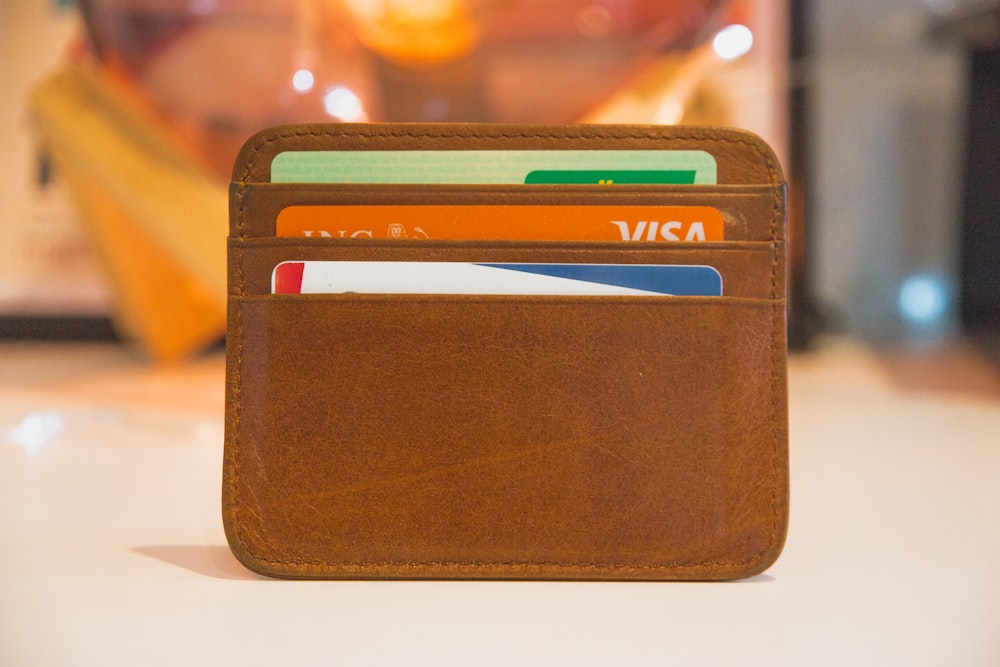How To Get A Credit Card For A Business
In 5 Easy Steps, Learn How to Get a Business Credit Card.
- Examine your alternatives and choose the best business credit card for you.
- Check your credit score to see which cards you might be eligible for.
- Fill out an application and prepare the essential business credit card requirements.
- Send your application in and wait for it to be approved.
- Activate your card and make responsible use of it.
Applying for a business credit card is always a good idea, regardless of the size of your company. You may use a business credit card to establish a financial history for your company, manage cash flow, delegate spending to staff, keep your personal and corporate funds separate, and much more. Plus, with the appropriate card, you may receive benefits such as redeemable points, cash back, and even free hotel stays, all of which will help you operate your business more efficiently.
However, even a simple online search for business credit cards might generate a large number of results. Not only are there a plethora of credit cards available, but each one comes with a lengthy summary of its rules and benefits—not to mention the application process. As a result, you're not alone if you're asking how to get a business credit card.
Fortunately, we're here to assist you. We'll go over why you should apply for a business credit card, what business credit card requirements you should be aware of, and how to get a company credit card step by step in this article. Finally, we'll go over everything you need to know about finding and applying for the best credit card for your company.
This article contains the following information:
- And What were the Benefits of Getting a Business Credit Card?
- Requirements for Business Credit Cards
- A Step-by-Step Guide to Obtaining a Business Credit Card
- The Bottom Line on Obtaining a Business Credit Card
Why Would You Want To Apply For A Business Credit Card?
Let's start with the basics before we get into the specifics of how to get a business credit card. Why should you apply for a business credit card in the first place?
If you own a small business, such as a sole proprietorship, you may believe that a business credit card is unnecessary—after all, you already have a personal credit card—and you may be wondering if it's realistically worth the time and effort to learn all of the business credit card requirements and apply.
Well, we'll be the first to tell you that getting a dedicated business credit card is absolutely worth your time and work. Obtaining a business credit card is not only useful but also a necessary step in the financial evolution of your company, regardless of its age, size, or type.
Let's look at some of the causes for this:
Your personal and company finances will be kept separate.
First and foremost, rather than charging everything to your personal credit card, utilizing a separate business credit card for your business costs maintains a vital barrier between your organization's financials and your personal finances.
In fact, separating your personal and business finances is one of the first steps you should take when starting a business, for both organizational and legal reasons. Separating your personal and business accounts will not only make tax season easier but will also safeguard your personal finances from any legal issues that may develop as a result of your business. Furthermore, whether you're an LLC or a corporation, you'll need a “corporate veil” to shield yourself from being held personally accountable for your company's debts or any legal troubles that may come as a result of a lawsuit.
Applying for and receiving a company credit card—after first opening, a business bank account, of course—is a terrific method to establish this separation.
You'll get capable of improving your credit history.
Getting a business credit card will be a vital step in improving your business credit, in addition to segregating your personal and business expenses. Unlike your personal credit history, your business credit history will be closely linked to your EIN and the spending and payments your company makes, which may include using a corporate credit card.
In addition, there are many business current accounts specifically developed for new firms that can guide you through the process of credit. What is the significance of credit lines? Your corporate credit score, similar to your individual credit score, is intended to demonstrate your borrower's dependability.
As a result, if you ever need business finance, your credit history will be one of the most crucial variables taken into account during the application process. Because lenders trust you'll be responsible enough to repay your debt on time if you have a good credit score, they'll feel comfortable lending you more money and at better rates.
As a result, if you need to build or rebuild your credit, the best way to do so is to borrow money responsibly and demonstrate that you can repay it on time and in full while staying under your credit limit—something you can do with a business credit card—putting yourself in the best possible position for future financial success.
You'll be able to receive operating cash quickly and easily.
Along these lines, acquiring a company credit card not only helps you build credit, but it also gives you access to working capital. This is especially handy if you're a new firm because you're unlikely to qualify for a loan or other types of financing. You'd also have to deal with a lengthy application process and potentially exorbitant interest rates if you took out a loan.
Although some business credit cards have high interest rates, if you pay off your balance every month or choose a credit card wisely, you'll either not be paying any monthly interest or have a card with a lower interest rate than the loan product you'd qualify for before you improve your credit profile.
As a result, by going through the simple process of applying for a business credit card online or in person, you'll have very immediate access to a revolving line of credit, allowing you to use the funds you need to get your business up and running.
Along the way, you'll gain significant credit card benefits.
Finally, the possibility of earning rewards is an additional incentive for having and utilizing a business credit card. You can redeem points and earn miles, cash back, gift cards, and more depending on the type of card you sign up for. In addition, when you sign up for a credit card and meet the requirements, you may be eligible for a welcome bonus.
Furthermore, you may be eligible for additional benefits such as travel accident insurance, longer warranties on some products, and even early access to tickets for major entertainment and sporting events. With a business credit card, you'll be able to not only separate your funds and improve your credit, but you'll also be able to earn more for your company while you spend.
Requirements for Business Credit Cards
Now that we have a clearer understanding of why you should get a company credit card, let's move on to the prerequisites for applying for a business credit card. After all, knowing the business credit card requirements and preparing for them before you begin an application will save you time and effort.
First and foremost, there are many different sorts of organizations that are eligible for business credit cards. Essentially, you have a chance of qualifying for a business credit card if you offer things or services for a profit and have a purpose for wanting one, such as acquiring materials.
So, let's go through 11 of the most typical business credit card requirements you'll need to know in order to submit an application. Some of these business credit card requirements are more clear than others. As you might expect, and the creditor will consider some of these variables more highly than others when determining your eligibility.
However, depending on the card and application process, you may require some, if not all, of the following:
The legal name of your company
Some of the prerequisites for applying for a business credit card are as simple as submitting basic information about yourself and your firm, including your legal name.
If your company is a C-corporation, S-corporation, LLC, or limited partnership, you'll need to enter the name under which you filed your company with the state. If you're a general partnership or a sole proprietorship, though, you can just use your own legal name.
Your Company's Contact Information
After that, you must supply your company's mailing address and phone number. You can list your home address if you work from home.
Business Type
You'll usually have to select an industry from a drop-down menu or check a box, so pick the one that most closely relates to your company.
Legal Structure or Business Entity
Your entity type—corporation, partnership, nonprofit, LLC, government, or sole proprietorship—will be asked on a business credit card application. If you're a freelancer looking for a business credit card and haven't yet registered your company with the state, you'll choose sole proprietorship.
If you're a company or partnership, you can be questioned if you have any beneficial owners. Beneficial owners are those who hold at least 25% of your company, either directly or indirectly, and are not you. To be clear, “indirect ownership” refers to owning equity in a company through another company. For example, if you own 100% of Company A, and Company B owns 25% of it, you are an indirect owner of Company B.
If you have beneficial owners who own at least 25% of your business, you'll be asked to supply some basic information about them, such as their name, home address, date of birth, social security number, and ownership percentage.
If you're wondering why this information is included in company credit standards, it was recently implemented as part of the Financial Institutions Customer Due Diligence Requirements. By confirming the identity of registered corporations' owners, this federal duty tries to protect against unlawful financial operations such as money laundering.
Number of Employees and Years in Business
If you're a new business, simply select the lowest option in your application's time in the field of business. If you don't manage any employees other than yourself, you'll just need to list one employee.
Federal Tax Identification Number
Your Federal Tax ID, often known as your EIN (employer identification number), is a nine-digit number assigned to registered businesses by the Internal Revenue Service. Your EIN will be used by a credit card issuer to authenticate your firm. You can use your social security number instead of an EIN if you're a sole proprietorship without an EIN.
Annual Business Revenue and Monthly Spend Estimates
You'll be ready to prepare some of the more involved information you'll need to submit an application once you've completed these fundamental business credit requirements. As a result, you'll need to provide your annual business revenue as well as your expected monthly card expenditure.
Essentially, the card issuer wants to know that you will spend wisely and that your income will be sufficient to cover your monthly credit card payments. Additionally, a card issuer will most likely determine the size of your credit line based on your income and projected monthly spend.
In general, the higher your annual business revenue, the more likely your business credit card application will be approved—the card issuer believes that the more money you have coming in, the less likely you are to fall behind on your expenses, and therefore, the less of a danger you pose.
If you apply for a company credit card but don't have any revenue to disclose, the card issuer will instead look at your personal annual income.
Annual Total Income
As previously stated, a card issuer does not require your firm to be your principal source of income in order to approve your business credit card application. In reality, it's not uncommon for new business owners and entrepreneurs with little cash to apply for and get approved for business credit cards—especially since carefully using a business credit card is such a solid way to develop your company's financial image.
Card issuers are ultimately interested in your entire annual revenue for two reasons:
- They must be assured that you have the required finances to reimburse them, and
- They'll need to figure out what your debt-to-income ratio is.
- These two business credit card conditions are crucial in determining whether or not creditors will approve your application.
As a result, you can include whatever revenue you earn from your business in your total annual income, whether or not that firm accounts for the majority of your income. To get that final total, you'll need to tally up all of your personal (full-time and part-time work) and business income streams. Again, the card company only needs to know that you have sufficient finances to pay off your obligation.
Furthermore, a modification to the 2009 CARD Act permits you to include your spouse's income in your computations if you actually intend to have access to their funds.
Legal name, address, and phone number, as well as social security number
In this vein, regardless of the type of business you run or the intricacies of your operations, a credit card issuer will evaluate your application based on your personal information. As a result, you'll have to give your full legal name, contact information, and social security number.
The card issuer will evaluate your personal credit score using your legal name and social security number, which is often the most crucial business credit card criterion.
Personal Credit History
Your personal credit history, which includes your personal credit score, is perhaps one of the most crucial business credit card requirements. The card issuer will do a credit check using the information mentioned above—your name and social security number. An issuer will analyze your credit score and current debts as part of this credit check, and they'll use your annual income to calculate your debt-to-income ratio, or how much your debt payments are relative to your income.
Even though you won't be filling out this information on an application, it's worth exploring why it's so important and how a credit card company will utilize it.
In essence, an issuer will utilize your personal credit history to assess your borrower's reliability. As a result, big red flags such as tax liens, bankruptcies, collections, and judgments may preclude you from receiving a business credit card approval. You'll have a far greater chance of getting approved for the business credit card you want if you consistently pay your bills in full and on time, keep your credit usage ratio low, have a low debt-to-income ratio, and have a clean financial history.
It's also worth noting that when you apply for a business credit card, the card issuer will run your personal credit history through a hard credit pull. Hard pulls produce a brief drop in your credit score when compared to mild pulls. You'll usually only see a tiny drop in your credit score (usually less than five points), but you'll want to avoid applying for too many business credit cards at once to keep your credit risk low.
Finally, if you've been in business for a few years, your personal details in your business credit card application won't be as important. If you're a startup with only a few months under your belt, credit card providers will place a greater emphasis on your personal finances when deciding whether or not to extend credit to your company.
Personal Guarantee
Most company credit cards will require a personal guarantee as part of the application process. A personal guarantee states that if the principal payer—most likely your business—fails to pay their credit card bills, the card issuer will hold you personally financially liable. A personal guarantee clause is frequently found in the fine print of your card's agreement terms and conditions.
As a result, if you're obliged to sign a personal guarantee, the only way to secure your personal funds is to pay all of your debts on time and in full every month. If you are concerned about your personal liability, there are ways to obtain a company credit card without a personal guarantee.
On average, if you'd like to circumvent a written agreement, you should get your bank card from an institution with which you already have a connection. If your institution has concrete proof of your trustworthiness from transaction history, they may be more willing to cancel your signed contract.
A Step-by-step Guide To Obtaining A Business Credit Card
Fortunately, understanding the business credit card requirements given above is a big part of figuring out how to get a business credit card, so once you've done that, you've already completed a big portion of the application process. Let's break down the actual steps for applying for a business credit card with this in mind:
Step 1: Choose the best business credit card for you.
There are many various types of business credit cards on the market, so before you apply for one, you'll need to research your options to see which one is ideal for your company.
What criteria should you use to choose which business credit card is best for you?
Finally, the best credit card for your business will be one that you believe you'll qualify for, offers the features and benefits you desire, and will assist you in meeting your financial objectives.
With this in mind, consider the following aspects as you filter through your options:
Introductory APR of 0% for a limited time
A 0% intro APR business credit card is an excellent alternative if you're wanting to improve your business credit score. You'll be able to roll over your credit card debt from month to month, with no added interest, for a specified length of time after you sign up for the card if it has a 0% intro APR term. This introduction stage usually lasts between nine and twelve months.
The introductory period for the American Express Blue Business Card Plus is 12 months. After your 12-month interest-free period expires, you'll be charged a variable APR based on your creditworthiness. This rate will fluctuate with the market, so check the issuer's terms and conditions for the most up-to-date APR information.
It's also crucial to keep in mind that after the 0% APR term ends, you'll need to make sure you can pay off your balance—if you can't, your balance will roll over and interest will accrue at the variable APR.
Although it's better to pay off your credit card payment in full each month if you want the flexibility of carrying a monthly load for a set period of time—perhaps to pay off a significant purchase—worth it's looking into the several business credit cards that offer a 0% initial APR.
A yearly fee
When comparing different company credit cards, it's crucial to examine the annual cost.
An annual fee is exactly what it sounds like: a one-time cost charged by the card issuer to account for the card's rewards and advantages. In most cases, this means that cards with more benefits have higher yearly costs.
However, if your ideal card offers fantastic advantages that are relevant to your business needs, it may be worth paying an annual fee. Consider the Chase Ink Business Preferred Credit Card, which has a $95 annual charge but no foreign transaction fees and no additional costs for staff cards. Furthermore, the rewards points you earn are never lost and redeemed for a number of benefits, including travel, cash back, and gift cards.
If you travel frequently, plan on getting employee cards, and want additional privileges, the $95 annual price may be worth it. If you want a business credit card with no annual charge, however, there are numerous options available, including cards with excellent advantages. In fact, the AmEx Blue Business Plus card we mentioned earlier offers no annual fee, plus a 12-month 0% intro APR term and 2x reward points for every dollar spent on your first $50,000 in purchases every year.
Program of Reward
One of the advantages of acquiring a business credit card, as we discussed before, is the various incentives you can earn. As a result, while looking for the best credit card for your business. Think about the types of benefits each card may provide—as well as the kind of rewards you desire.
Do you prefer points, cash back, or miles as a form of compensation? Would you prefer to get flat-rate or tier-based rewards?. Flat-rate incentives give you the same number of points regardless of how much you spend in each category. Because they're simple, these are the most popular sort of reward issued by credit card companies.
Tiered rewards, on the other hand, provide higher reward percentages for large purchases or purchases in a certain area, such as petrol, grocery, department stores, or even Amazon purchases. Finally, the ideal business rewards credit card for you will be determined by the perks your company might benefit from the most, as well as where you spend the most.
However, if you're searching for a quick way to get cash back, you might look into the Chase Ink Business Cash credit card. Which offers 5 percent, 2 percent, or 1 percent cash back depending on where you spend. Office supply stores, internet, cable, and phone services, gas stations, and restaurants are all eligible spending channels. So, paid for a lot of your everyday expenditures.
Fee for International Transactions
If you travel internationally frequently, you are aware of the foreign transaction fees connected with certain business credit cards.
Foreign transaction fees are usually charged at a rate of 3%. So if you'll be making large purchases outside of the US. You'll want to look for a business credit card that doesn't charge them. It's also worth remembering that you don't travel to charge a foreign transaction fee on your credit card. This fee applies if you purchase goods online from a foreign shop or if your transaction is processed through a non-domestic bank.
Although most issuers levy foreign transaction fees, there are notable outliers, like Capital One, which has eliminated these fees. Many business travel credit cards also include no foreign transaction fees and travel-specific benefits. Those are earning points on all travel-related transactions, redeemable miles, and complimentary hotel stays.
If this sounds like the type of card that would be perfect for your company. Check out the Capital One Spark Miles for Business card. Which has a great flat-rate rewards scheme and a big sign-up bonus.
Bonus For Introducing Yourself
The welcome or registration bonus is another aspect worth considering while looking for the best business credit card.
If you spend a particular amount of money on a business credit card. That gives a welcome bonus within the first few months of using the card. You'll get extra points, rewards, miles, or cash back.
Although not all business credit cards offer this benefit. It's worth looking into the ones that do if you plan on making large purchases with the card in the first few months. This way, you'll be truly maximizing your expenditure. For example, if you spend $7,500 in the first three months on the Chase Ink Business Unlimited card. You'll get a $750 welcome cashback incentive.
When it comes to signup bonus credit cards, though, check the fine print to discover. How much money you'll need to spend—and on what types of purchases. To ensure that you'll be able to take advantage of the offer.
Charge Card vs. Business Credit Card
Finally, you should think about if you would prefer a charge card to a credit card before applying for a business credit card. The primary distinction between a charge card and a credit card is that credit cards. Have a monthly spending limit, whereas charge cards are more flexible.
As a result, unlike a credit card, a charge card issuer does not set a preset spending limit at signup. And your maximum spending limit can fluctuate from month to month. However, based on your financials and payment history. The issuer will still set an absolute limit amount you can spend on your card.
Furthermore, with a credit card, you pay off the entire sum each month. You still keep within the limits of your credit limit.
As a result, a charge card is really only a smart idea for organizations. They have solid financials and credit scores and need to make substantial transactions. If you're thinking about getting a credit card, make sure you can pay your monthly fee on time, every time. You should also be aware that credit cards usually come with an annual charge, which can be rather costly.
Examine your credit report
After you've narrowed down your alternatives based on these and any other qualities that are vital to your business. The next step is to find out what your credit score is. As previously said, your personal credit score is one of the most crucial aspects of your business credit card application.
As a result, before you begin filling out an application, you should check your credit score to see. Because every credit card application requires a minimum credit score. You should only apply for cards for which you are eligible to prevent damaging your credit score.
If you have bad credit, a secured business credit card, which needs cash collateral, may be a good option. If you have a limited credit history, a card like the Capital One Spark Classic. That only requires a credit score of 580, which can be a good option.
Gather the prerequisites for a business credit card and fill out an application.
Now We'll Get Down To Business: How To Get A Company Credit Card.
There's not much to it at this point—online applications make applying for a company credit card a breeze. Once you've discovered the proper business credit card for you. You'll most likely be able to complete the application online and receive approval in a matter of seconds.
As a reminder, you'll almost certainly have to meet the business credit card standards. We covered it before, but the specifics will vary depending on the card you're looking for.
As a result, while it may seem self-evident, you should take care to fill out your application completely. If there are clerical issues with your company credit cards application. Lenders may not be able to pull your credit score if you ever need to apply for a business loan. As a result, you'll want to pay special attention to details like making sure. You're supplying your business address rather than your home address and that your revenue calculation is correct.
You could submit your request when you've fulfilled every one of the corporate card prerequisites also double your data.
Wait for confirmation.
It really shouldn't even want to learn if you authorized for a company account once you submitted your request. As previously said, most software stores will notify you whether or not you have been authorized for the credit practically instantaneously. Following approval, you may receive notification about when your company credit cards will arrive in the mail.
If you refused for something like a finance company, from the other extreme. You analyze the refusal reason offered by the provider. If you discover that it's lowering your credit rating, you should attempt to correct it.
Get your business bank card activate and start using it properly.
Finally, you should activate your company credit cards as quickly as possible after receiving them. As a result, you can begin to use it properly to manage your business spending and increase your credit score.
The credit limit on your card is determined by your credit score and your (or your business') annual revenue. When it comes to extending credit limits. Issuers are sometimes cautious at first to ensure that they will get their money back.
Regardless of your credit limit, you'll want to make sure you're spending responsibly. Spending sensibly and paying off your balance on time. And in full will put your company in the best possible position for future financing alternatives.
Final Thoughts
That concludes your comprehensive guide on obtaining a company credit card. At the end of the day, despite the fact that there are a few business credit cards requirements. The procedure is very straightforward once you know what to expect.
To begin, think about your company's requirements. Then you'll want to figure out which card features you need to pay attention to. And select the card with the features that best meet your needs. Finally, have all of your information ready for the application. And keep in mind that your personal credit will almost certainly play a role in your approval or rejection.
Once you've applied for and obtained your company credit cards. You'll have taken a vital step toward bettering or establishing your business credit through careful credit card spending.


























































































